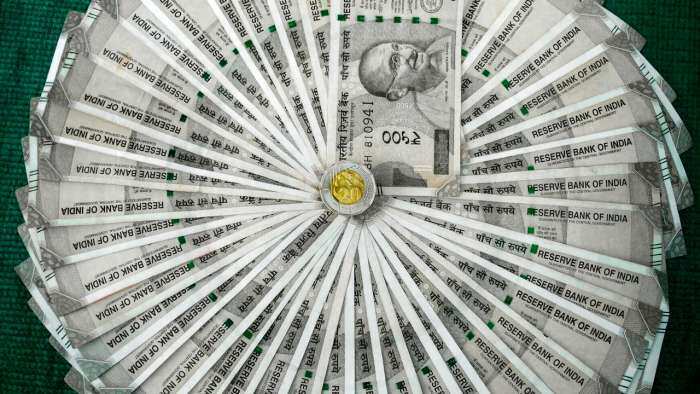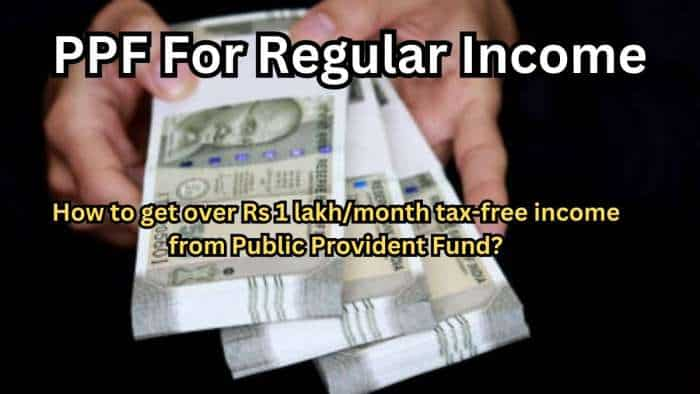Explained: Restoration of Saudi-Iran ties may alter power dynamics in West Asia and can have lasting impact on energy sector
China's role in the Saudi Arabia-Iran deal shows its growing influence in the region, with the US taking a back seat

Just a month back, not even a hard-core optimist would have thought that the Saudi and Iranian governments would shake hands to restore diplomatic relations without the involvement of the United States.
Not just that, the deal was brokered by China, with customary photo shoot in Beijing on Friday.
Ali Shamkhani, the secretary of Iran's Supreme National Security Council, Musaad bin Mohammed al-Aiban, Saudi Arabia’s national security adviser, and Wang Yi, China's most senior diplomat, were present for the deal.
The agreement says the foreign ministers of both countries will meet within two months to restore ties that were severed seven years ago.
In 2016, demonstrations triggered in various places in Iran when the Sunni regime of Saudi Arabia executed prominent Shia cleric Sheikh Nimr.
In the aftermath, protestors in Tehran attacked the Saudi embassy and damaged its property.
In Mashhad, the second-largest city in Tehran, a few demonstrators went a step ahead, burned the Saudi consulate, and tore the Saudi flag.
Following the attacks, both countries severed ties.
The Saudi-Iran deal – Why it matters?
Arguably, the deal is an indication that the US influence it West Asia may be waning and relatively an increase in China’s clout.
The US-Iran ties have remained frosty since the 1979 Islamic revolution, when Ayatollah Khomeini led a coup against the Shah Reza Pehlavi regime.
Subsequently, the 444-day-long hostage crisis involving US diplomats and citizens in Tehran in 1979–1981 added insult to injury.
Since then Iran has been part of the so-called ‘Axis of Evil’, a phrase coined by former US president George Bush for Iran and North Korea in 2002.
In September 2020, when the US mediated between Israel, the United Arab Emirates, and Bahrain, to sign the Abraham Accords, it was assumed that the Pacific nation would soon have Saudi Arabia joining the forum and rallying against Iran.
However, Saudi Arabia took a cautious approach and didn't join the accord.
The COVID-19 crisis and the Russia-Ukraine war detoured the US from prioritising the Gulf Region.
The slowdown of the economy due to the COVID-19 crisis and China's growing influence in the South-Pacific region dealt a heavy blow to the US.
The Iranian regime back home was facing huge protests as its economy had gone to dogs because of global economic sanctions.
It couldn't afford to stay hostile to the global powers for long.
The regime in the Shia nation decided to change its stance and opened the door for reconciliation.
China, which is Iran's biggest business partner and also purchases oil from Saudi Arabia in large quantities, saw it as an opportunity.
It tried to forge a deal between the two Gulf nations.
It took two years before Saudi Arabia and Iran agreed to restore diplomatic ties on Friday.
Given the history of extreme cold relations between the two countries, it is yet to be seen whether Saudi Arabia and Iran will maintain relations for long.
The US and France welcomed the deal but remained cautious in their optimism, citing Iran's chequered record.
However, it appears to be a case of sour grapes, as the US would never want China to control the Gulf region.
However, China now shoulders the responsibility of keeping Saudi Arabia and Iran on the same page.
However, whether the deal comes to fruition in the long term or not, China has emerged a clear winner over the US.
The Big picture
China's increasing influence
China is surely gaining influence in the region. But it is also important to know why China is taking an interest in a region where it has historically had no influence.
China's interest lies in business and weakening the US's influence in the Gulf nations.
China is the largest buyer of Saudi oil and one of Iran's most important trading partners.
Unlike the US, which has the image of an interventionist, China comes with a clean record and is among a handful of nations that have good relations with both Saudi Arabia and Iran.
Right from the 1956 Suez Crisis, the US has been a part of every important peace agreement between Israel and Arab nations, be it the Camp David Agreement (1978), the Oslo Accords (1993), the Middle East Quartet (2002), or the Abraham Accords.
This is a rare time when the US is absent from the agreement of two strategically important countries.
With China taking up the mantle of the deal, it is a sign of the rise of a new power in the world order.
China had been trying to broker the deal between Saudi Arabia and Iran since 2021, but it was only Chinese President Xi Jinping's visit to Saudi Arabia in December and Iran's president Empahim Raisi's visit to China last month that made it seem imminent that a deal was in the offing.
With the deal, China has sent a message that its intentions are not to become an interventionist but a reconciliator.
US's waning clout
Saudi Arabia has been a long-term close ally for the United States.
While the Saudi monarchy time and again got legitimacy through US support, the Pacific nation has been dependent on the Gulf country to fulfill its oil needs.
The long-term love affair between the two nations transcended boundaries and got deeper with time.
But the early signs of disagreement appeared in 2019 when the US looked away after Iran-backed forces allegedly attacked Saudi Arabia's oil facilities.
Joe Biden became the US president at the end of 2020, and in February 2021, his administration pulled the plugs on offensive operations in the war in Yemen, from where the Houthi rebels were launching attacks on the Saudi territory.
In April 2022, CIA Director William Burns traveled to Saudi Arabia and asked Crown Prince bin Salman to increase oil production.
The Saudis went otherwise and cut down on oil production.
In October 2022, Saudi Arabia said that the US wanted to lower oil and gas prices ahead of the mid-term elections.
The US went on to say that Saudi Arabia was helping the Russian invasion of Ukraine by cutting oil production.
When National Security Council spokesman John Kirby reiterated Biden's stand that "we are reevaluating our relationship with Saudi Arabia in light of these actions", the writing was on the wall.
Saudi Arabia didn't find itself disowned but thought of having ties with more allies to consolidate its position.
On Monday, a Wall Street Journal report said China is planning to host a summit of senior officials from Iran and its six Arab neighbours in the Gulf Cooperation Council (GCC).
If it happens, it will be a whammy for the US, which has long dictated the terms of international politics in the region.
Will it influence the Abraham Accords?
The Iran-Saudi Arabia deal drew criticism from Israeli Prime Minister Benjamin Netanyahu and Israeli opposition leader Yair Lapid.
Israel has long been courting Saudi Arabia to join the accord and join the fight against Iran, but the Gulf nation has stayed away due to Israel's alleged role in the Palestinian conflict.
Saudi Arabia has also sent a signal that it does not depend on Israel to make or break a relationship with a country.
The deal, however, has not impacted the accord, as the nations that have joined it are sticking to their promises.
But, the success of the accord can depend on two situations, whether Israel and the US change their stand about the deal, and also whether the Gulf nations take the China route for the resolution of further crises.
What impact will it have on the oil price?
The deal can work on different platforms. Good relations between Saudi Arabia and Iran will lead to fewer conflicts in the region.
The Saudi and the Iranian regimes have supported proxies in conflict-ridden areas like Syria, Yemen, and Lebanon.
If they work on the peace of the area, there will be fewer conflicts, and the oil rate is likely to drop.
On the other front, if Iran exports more oil to China amid global sanctions, oil demand can increase, which may lead to an increase in oil prices.
Apart from that, OPEC countries have the set target for oil production are they find it hard to meet them. In OPEC+, Saudi and the UAE both are courting Russia since its their major buyer. Such factors may lead to static prices of oil.
Get Latest Business News, Stock Market Updates and Videos; Check your tax outgo through Income Tax Calculator and save money through our Personal Finance coverage. Check Business Breaking News Live on Zee Business Twitter and Facebook. Subscribe on YouTube.
RECOMMENDED STORIES

SIP Calculation at 12% Annualised Return: Rs 10,000 monthly SIP for 20 years, Rs 15,000 for 15 or Rs 20,000 for 10, which do you think works best?

FD Rates for Rs 10 lakh investment: Compare SBI, PNB, HDFC, ICICI, and Post Office 5-year fixed deposit returns

LIC Saral Pension Plan: How much should you invest one time to get Rs 64,000 annual pension for life?

SIP Calculation at 12% Annualised Return: Rs 1,000 monthly SIP for 20 years, Rs 4,000 for 5 years or Rs 10,000 for 2 years, which do you think works best?

UPS vs NPS vs OPS: Last-drawn basic salary Rs 90,000 and pensionable service 27 years? What can be your monthly pension in each scheme?

Monthly Pension Calculations: Is your basic pension Rs 26,000, Rs 38,000, or Rs 47,000? Know what can be your total pension as per latest DR rates
07:12 PM IST










